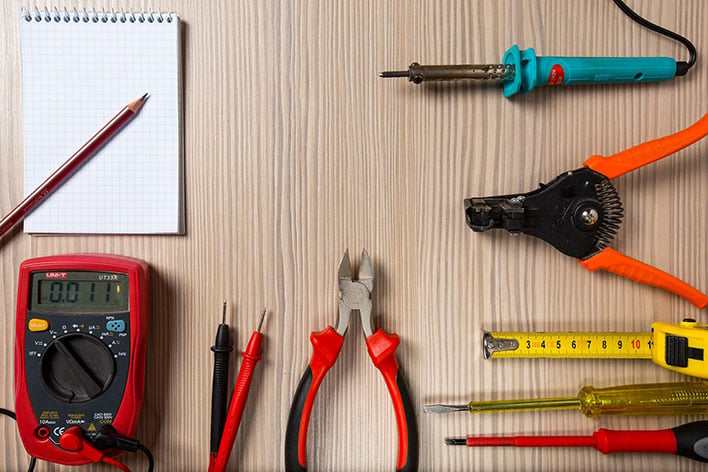FTC Votes Unanimously To Support Biden's Consumer-Friendly Right-To-Repair Policy

We live in a culture where if something breaks, it can sometimes be easier and cheaper to toss it and replace it, then to attempt a do-it-yourself (DIY) repair. That is partially by design—manufacturers have a penchant for making repairs more difficult than they need be. Perhaps not for long, though, with the Federal Communications Commission voting unanimously in favor of adopting policies that would remove some of the roadblocks to DIY repairs.
There is a process involved, and it started earlier this month with President Joe Biden signing an executive order instructing the FTC to write up rules in favor of right-to-repair policies. Taking a big step in that direction, the FTC this week said it voted 5-0 to approve a policy statement aimed at curbing the practice of making repairs "extremely difficult for purchasers."
Some of those practices on behalf of manufacturers include using adhesive to make parts difficult to replace, limiting the availability of replacement hardware and special tools, and especially as it relates to the automobile industry, making diagnostic software unavailable to users and independent repair shops.
"These types of restrictions can significantly raise costs for consumers, stifle innovation, close off business opportunity for independent repair shops, create unnecessary electronic waste, delay timely repairs, and undermine resiliency," FTC Chair Lina Khan said during an open Commission meeting. "The FTC has a range of tools it can use to root out unlawful repair restrictions, and today’s policy statement would commit us to move forward on this issue with new vigor."
Changes will not happen overnight. That's to say, your smartphone or high-tech vehicle is suddenly going to become easier and cheaper to repair, either on your own or through independent facilities. But the first steps are in place, with the FTC's 5-0 vote being a key one.
The FTC issued a broader statement on the right-to-repair (PDF), where it said unlawful repair restrictions have not take priority among the things it enforces, over the past several years. But with the unanimous vote, the FTC said it will "devote more enforcement resources to combat" unlawful practices aimed at making repairs difficult.
There are four main pillars it mentioned. They include...
- First, the Commission urges the public to submit complaints and provide other information to aid in greater enforcement of the Magnuson-Moss Warranty Act and its implementing regulations.
- Second, the Commission will scrutinize repair restrictions for violations of the antitrust laws.
- Third, the Commission will assess whether repair restrictions constitute unfair acts or practices, which are also prohibited by Section 5 of the Federal Trade Commission Act.
- Finally, the Commission will bring an interdisciplinary approach to this issue, using resources and expertise from throughout the agency to combat unlawful repair restrictions.
The FTC went into more detail in its full statement, but the gist of it is, manufacturers will be operating under the spotlight going forward, as it pertains to a consumer's right to repair their products. Or put another way, the FTC just put companies like Apple, Samsung, and others on notice.

